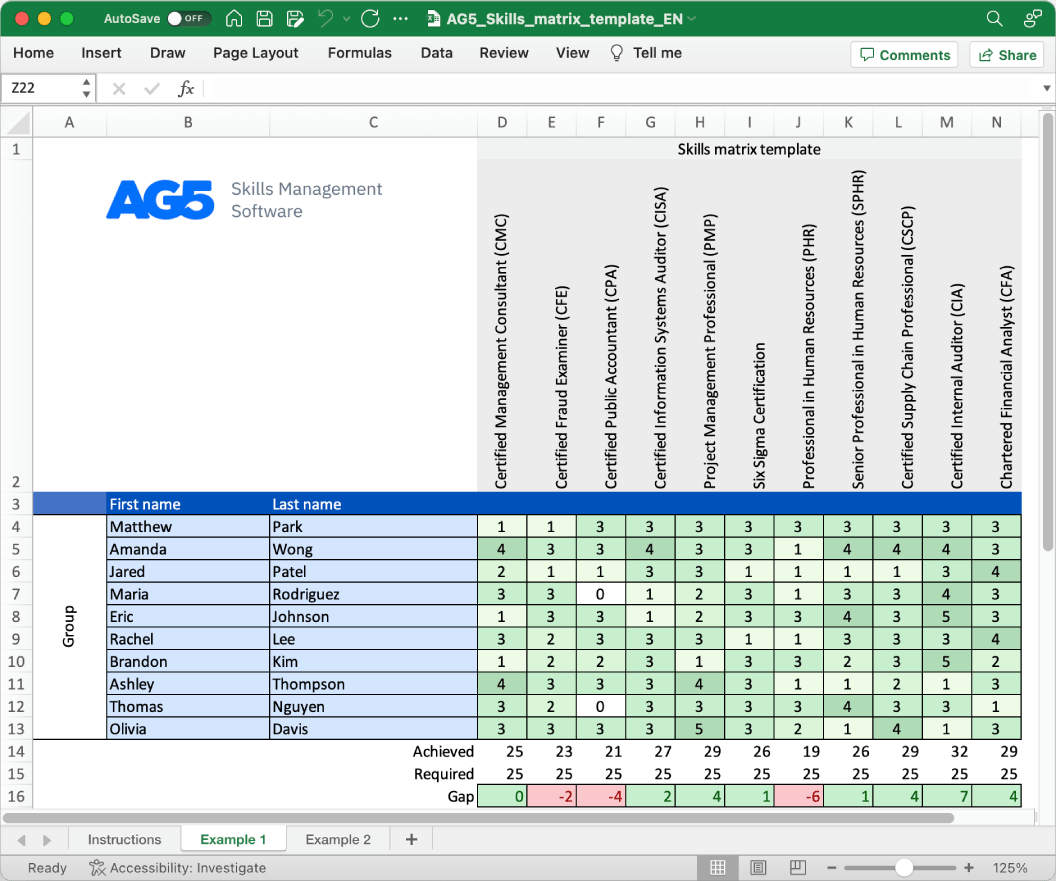Risk communication skills matrix template
A skills matrix template is a tool teams can use to assess their risk communication skills and knowledge
Download your free template here

Overview Copied
With our free risk communication skills matrix template, you will receive a clear overview of the skills that are present in your organization, as well as those that are missing. Using this information, you can develop and implement a plan to ensure that your employees’ skills are up to date, comprehensive, compliant, and ready for the future.
- Certified Risk Communication Specialist (CRCS)
- Certified Risk Communication Consultant (CRCC)
- Certified Risk Communication Trainer (CRCT)
- Certified Risk Communication Officer (CRCO)
- Certified Risk Communication Practitioner (CRCP)
- Certified Risk Communication Analyst (CRCA)
- Certified Risk Communication Manager (CRCM)
- Certified Risk Communication Coordinator (CRCC)
- Certified Risk Communication Strategist (CRCS)
- Certified Risk Communication Facilitator (CRCF)
- Certified Risk Communication Planner (CRCP)
- Certified Risk Communication Advisor (CRCA)
- Certified Risk Communication Team Leader (CRCTL)
- Certified Risk Communication Auditor (CRCA)
- Certified Risk Communication Specialist (CRCS)
- Certified Risk Communication Lead (CRCL)
- Certified Risk Communication Expert (CRCE)
- Certified Risk Communication Coordinator (CRCC)
- Certified Risk Communication Trainer (CRCT)
- Certified Risk Communication Practitioner (CRCP)
Benefits Copied
Skills management software is important in risk communication to identify individuals proficient in stakeholder engagement, clear communication, risk perception, crisis communication, and cultural competence, enhancing effective and targeted risk communication strategies.
Author Copied
Revisions Copied
Tired of managing skills in Excel?
Say goodbye to Excel matrices. Start using AG5’s plug and play skill matrix software.
Recognized by G2 for Excellence in Skills Management

